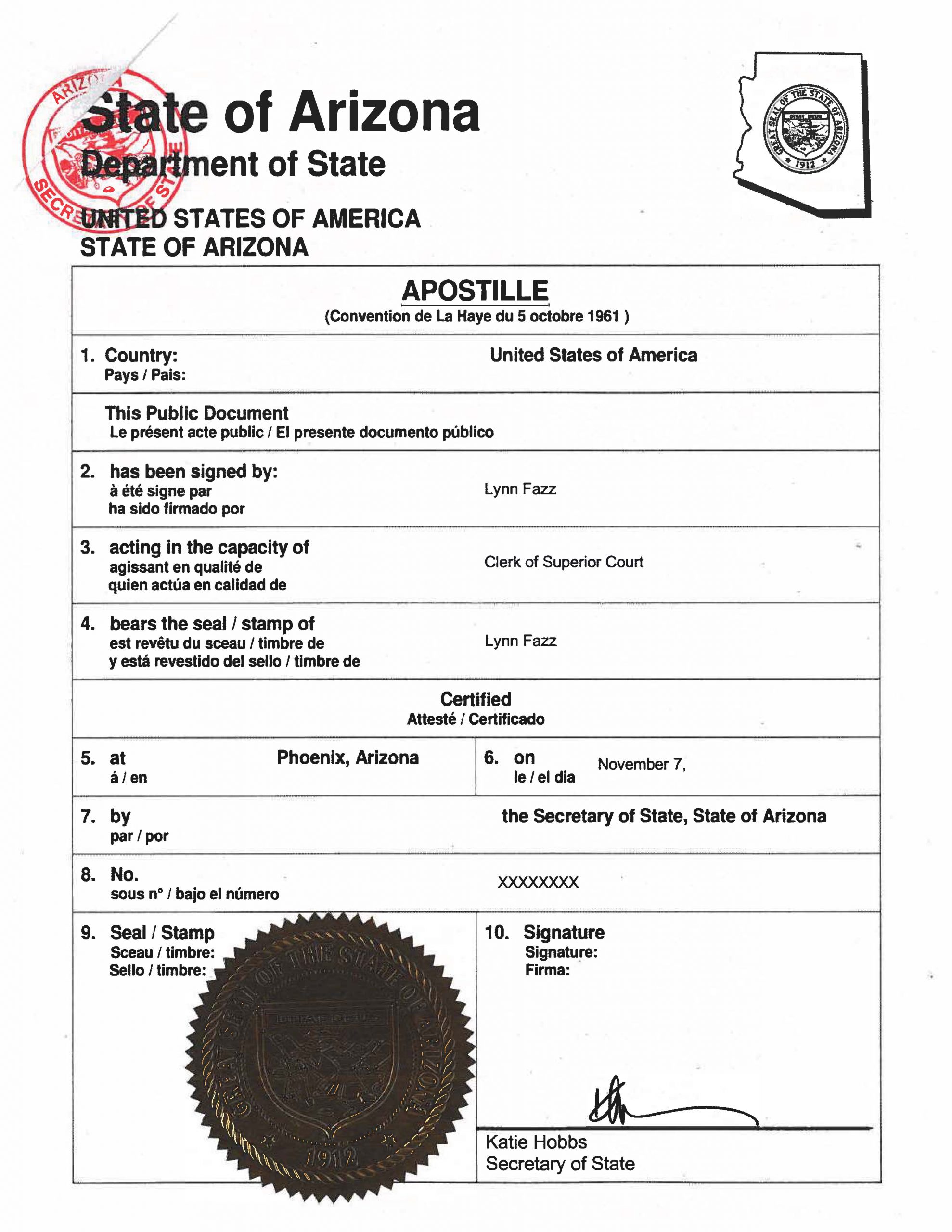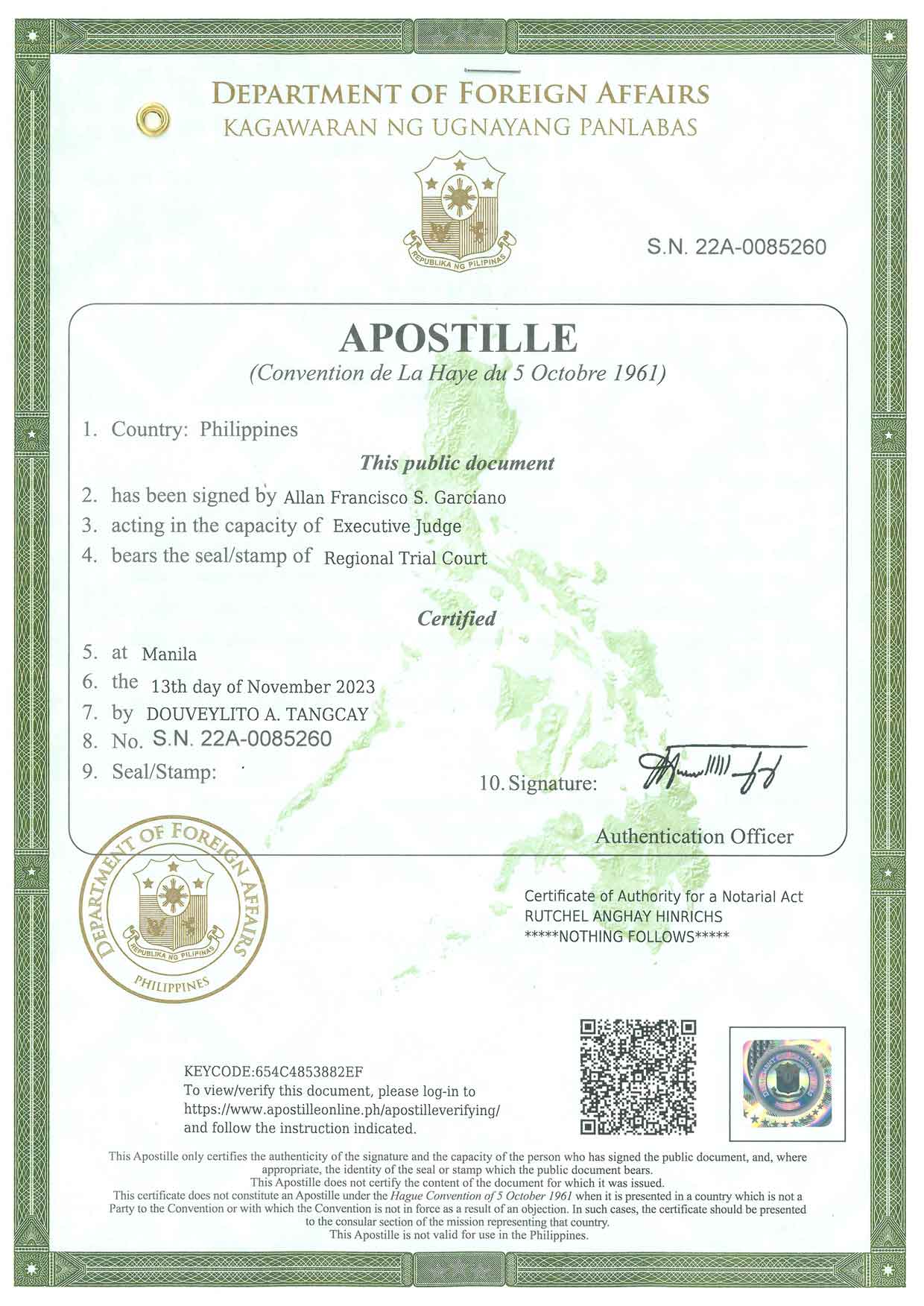Specialist Houston Texas Apostille-- Secure and Reliable Handling
Recognizing the Apostille Process: A Comprehensive Overview to International File Verification
Browsing the complex landscape of global document authentication can be discouraging without a clear understanding of the apostille procedure. This guide diligently outlines the required actions, from identifying which papers call for certification to submitting them for confirmation by the Competent Authority. Understanding the relevance of an apostille and recognizing prospective risks, such as insufficient entries and language obstacles, can substantially enhance the verification trip. What specifically defines an apostille, and why is it so vital for documents predestined for Hague Convention countries? These questions develop the structure of our expedition into this important lawful procedure.
What Is an Apostille?
An apostille is a main qualification that validates the credibility of a paper for use in another country. This qualification, released by an assigned authority in the country where the file originated, ensures that the record is identified as valid and genuine in the international sector. The procedure of getting an apostille includes a number of steps, consisting of the confirmation of the paper's signatures, seals, and stamps by appropriate governmental bodies.
The apostille functions as a globally acknowledged form of verification, made feasible by the Hague Convention of 1961. This treaty, officially referred to as the Hague Convention Abolishing the Need of Legalisation for Foreign Public Papers, systematizes the process of record accreditation amongst participant countries. The apostille itself is a standard certificate that has certain information, such as the releasing authority, the native land, and the date of issuance.
It is essential to keep in mind that not all documents are qualified for an apostille. Usually, public documents like birth certifications, marriage licenses, court orders, and instructional diplomas qualify for this qualification. Personal documents, such as agreements and agreements, might require registration and additional actions to certify.
Relevance of Apostille
Understanding what an apostille is establishes the phase for valuing its importance in international negotiations. houston tx apostille. An apostille, basically a form of accreditation issued by an assigned authority, validates the authenticity of a record for use in foreign nations that are signatories to the Hague Apostille Convention. This standardized procedure removes the need for additional legalization by consular offices or consulates, consequently simplifying international deals
It ensures the trustworthiness and approval of necessary documents-- such as birth certifications, marital relationship licenses, and educational diplomas-- across boundaries. For organizations, it helps with the smooth conduct of worldwide trade, mergers, and purchases by offering a relied on approach of paper confirmation.
In addition, an apostille improves legal protection and conformity. Governments and establishments can with confidence rely on the credibility of files birthing an apostille, alleviating the risk of fraudulence and misrepresentation.
Documents That Require Apostille
When participating in international deals or lawful matters, certain documents typically demand the authentication supplied by an apostille. This guarantees their recognition and acceptance in nations that are signatories to the Hague Apostille Convention. Typically, individual records such as copyright, marriage certifications, and fatality certifications require an apostille, particularly when they are made use of for procedures like immigration, marriage abroad, or worldwide probate matters.
Educational papers are an additional category often requiring apostilles. you can check here Diplomas, transcripts, and academic records commonly require this verification for objectives such as pursuing further education, employment, or expert licensing in an international nation (houston tx apostille). This action assures that the records are recognized as genuine and valid
Legal files, consisting of powers of lawyer, testimonies, and court orders, additionally commonly necessitate apostilles. Business documents such as certificates of incorporation, bylaws, and commercial agreements might call for an apostille to promote global profession, establish foreign branches, or engage in cross-border lawful process.
Actions to Get an Apostille

Getting an apostille entails a multi-step procedure that ensures the credibility and approval of your records in foreign countries. The initial action is recognizing which records require an apostille. houston tx apostille. Typical files include copyright, more marital relationship licenses, scholastic records, and corporate documents
When recognized, the paper should be certified by the appropriate releasing authority. This might include notarization by a notary public or confirmation by a neighborhood or state official, depending on the kind of paper. After accreditation, the document needs to be submitted to the designated Competent Authority in the document's native land. In the USA, for instance, this is normally the Assistant of State's office for each state.
The submission process typically calls for a finished application, the initial paper, and a charge. Some jurisdictions might supply the choice of expedited handling for an extra cost. Upon successful confirmation, the Competent Authority will attach the apostille certification to the paper, thereby validating its authenticity.
Typical Obstacles and Solutions
Navigating the apostille procedure can provide several usual obstacles that, if not use this link correctly dealt with, may postpone or complicate record authentication. Each nation has details requirements for the kinds of records that can be apostilled, and any kind of deviation from these can result in rejection.
Another common difficulty is recognizing the diverse handling times. Handling times can vary dramatically in between countries and also in between different regions within the same country. It is important to make up these variants when intending the apostille procedure to prevent unforeseen delays.
Additionally, language barriers can present considerable obstacles. Documents in an international language usually call for certified translations, and any inaccuracies in translation can bring about more issues. Engaging a professional translation service can reduce this risk.

Conclusion
Grasping the apostille procedure substantially improves the efficiency of global file authentication. By comprehending the need of identifying and accrediting required files, and browsing the submission to the Competent Authority, the procedure comes to be much more convenient.